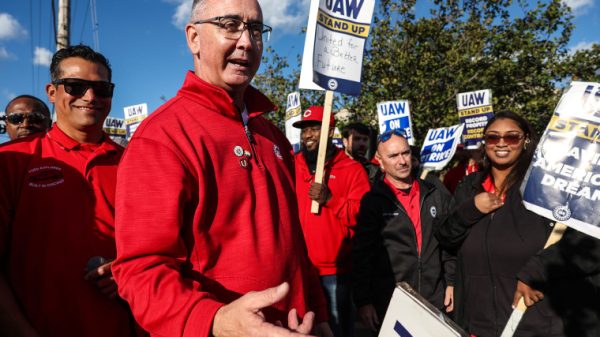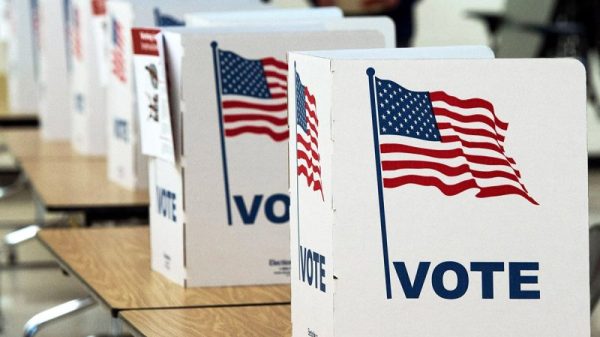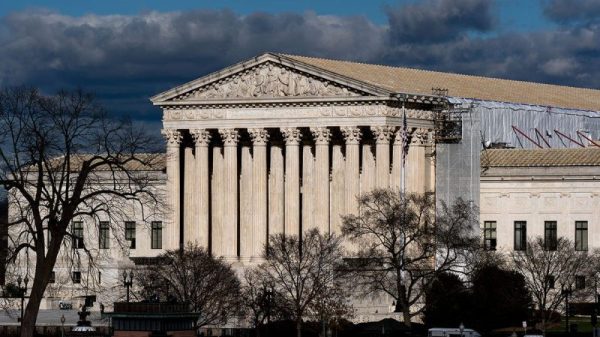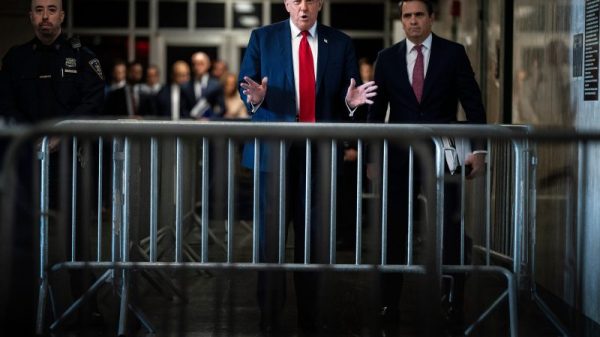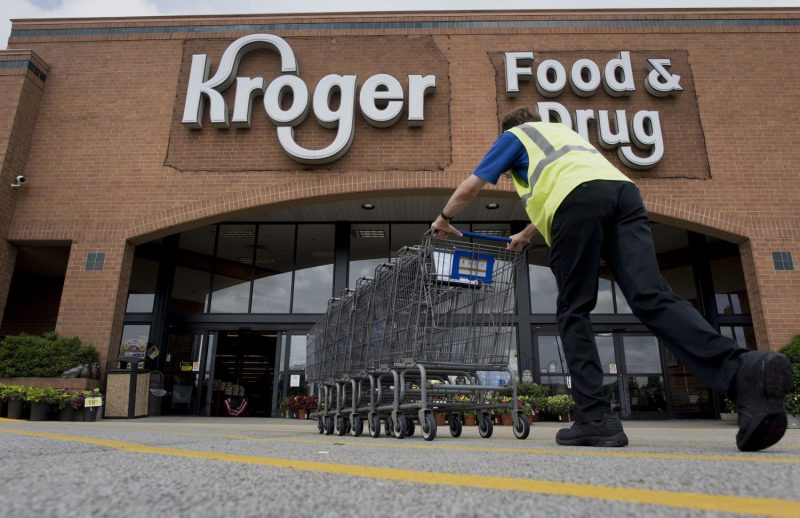The Biden administration’s move Monday to try to block the $24.6 billion deal to combine Kroger and Albertsons supermarket chains came as no surprise. This White House has launched some of the most aggressive antitrust policies in living memory.
The Federal Trade Commission’s lawsuit holds big stakes for the grocery industry, millions of shoppers and hundreds of thousands of store workers. Yet there’s plenty of debate over who has the stronger case — the companies or the regulators — and how the battle will shake out.
“The FTC’s position that Kroger and Albertsons currently compete with each other, and that keeps prices lower — this is the first time that we’re really hearing that,” said Phil Lempert, a food industry analyst and founder of SupermarketGuru.com.
These are a few of the factors hanging in the balance.
The two companies and the FTC have opposite predictions for what would happen to grocery prices if Kroger is allowed to buy Albertsons.
Federal regulators say the merger would “eliminate fierce competition” between the two chains, reducing the need to keep prices low to lure in shoppers. The FTC alleged one executive involved in the proposed deal described it as “basically creating a monopoly” in the market.
Kroger and Albertsons insist a combined company could better vie with big rivals in pressing suppliers for the best deals, then pass the value on to customers. Kroger said in a statement Monday that it’s committed to investing $500 million on cost reductions as soon as the merger closes, and cited its “long track record of reducing prices every year, with $5 billion invested to lower prices since 2003.”
Neil Saunders, managing director of the retail consultancy GlobalData, is skeptical of the FTC’s price prediction. From behemoths like Walmart, Costco and Amazon to dollar stores, regional chains and discounters like Aldi, grocers of many sizes already compete on price, he said.
“Grocery is a very low-margin business where volume is a prerequisite for delivering what the market wants,” Saunders said. “With this degree of competition, a merged Kroger and Albertsons poses few real threats.”
Lempert tends to agree. By combining forces, “a lot of the duplication between buying and merchandising, really at the executive level, gets diminished,” he said. “They can really become a much more efficient operator.”
Lempert also cast doubt on the FTC’s concerns that the merger could dent quality. Kroger and Albertsons have about 35,000 private-label store brands, he estimated, “and store brands have increased quality over the past probably 10 years.”
But consumer advocates took the FTC’s side.
“Concentration in grocery retail has already caused food prices to skyrocket,” said Stacy Mitchell, co-executive director at the Institute for Local Self-Reliance, a nonprofit advocacy group for independent businesses. “This merger would have undoubtedly led to even more consolidation among processors and the closure of independent grocery stores, furthering the proliferation of food deserts in underserved rural and Black and brown communities across the country.”
Some labor advocates cheered the FTC’s push to block the merger as a potential victory for workers, who the agency estimated would number almost 700,000 in a combined company.
Seth Harris, a law and policy professor at Northeastern University, called it a sign that the agency “takes anticompetitive behavior in labor markets as seriously as it takes anticompetitive behavior in consumer product markets.”
“Huge employers merging so they can use their power to lay off workers or hold down wages is just as troubling as sellers combining to fix prices higher,” said Harris, who served as the Biden administration’s top labor adviser until 2022. “In both cases, working people are worse off.”
Walmart, the nation’s biggest seller of groceries, is planning to expand.Jeff Greenberg / Universal Images Group via Getty Images file
Kroger rejected allegations that merging with Albertsons would squeeze employees, vowing to invest $1 billion post-merger to raise wages and benefits. The companies also noted that their workforces are unionized, unlike their biggest competitors.
“This decision only strengthens larger, non-unionized retailers like Walmart, Costco and Amazon by allowing them to further increase their overwhelming and growing dominance of the grocery industry,” Kroger said in its statement. “As union membership continues to decline nationwide, especially in the grocery industry, this merger is the best way to secure union jobs.”
Other authorities share the Biden administration’s concerns about labor. A bipartisan group of attorneys general from eight states and Washington, D.C., backed the agency’s lawsuit Monday, and other state-level efforts have taken aim at the grocery chains on labor grounds.
Earlier this month, Colorado’s attorney general (who didn’t join the FTC’s effort but voiced support for it) backed local unions in a lawsuit alleging that Kroger and Albertsons had agreed not to poach each other’s employees during a strike seeking higher pay. The companies have denied the claims.
“The other retailers in the Denver area are nonunion,” Lempert noted. For regional labor leaders looking to maximize workers’ leverage, “it makes it harder to negotiate if there’s just one.”
The shadow of Walmart looms over the dispute. An FTC victory would crimp Kroger’s and Albertsons’ plan to better compete with the nation’s biggest grocer. Walmart’s stock recently hit an all-time high, and the company is now charting out plans to add more than 150 large-format stores over the next five years.
Walmart has found more success than many other big retailers in an era of inflation-fatigued consumers, including higher-income ones that have increasingly turned up searching for bargains.
But for now, “the average Walmart food shopper is very different than the average Kroger [or] Albertsons shopper,” said Lempert. The latter, he said, “wants more services, they want more prepared foods, they want a better retail experience. The average Walmart food shopper wants cheap prices.”
A geographic analysis by the mapping software provider Caliper found the merger could give Kroger greater access to younger, upwardly mobile customers in burgeoning metro areas — a cohort some experts see as a key target of Walmart’s expansion.
If the FTC prevails, “it leaves each company with some holes in their footprint,” said Michael Baker, managing director and senior research analyst at D.A. Davidson, a financial services firm. Kroger and Albertsons would “have to grow organically” while continuing as separate companies, he said, “but that becomes difficult because you have another competitor who is still in those markets.”







